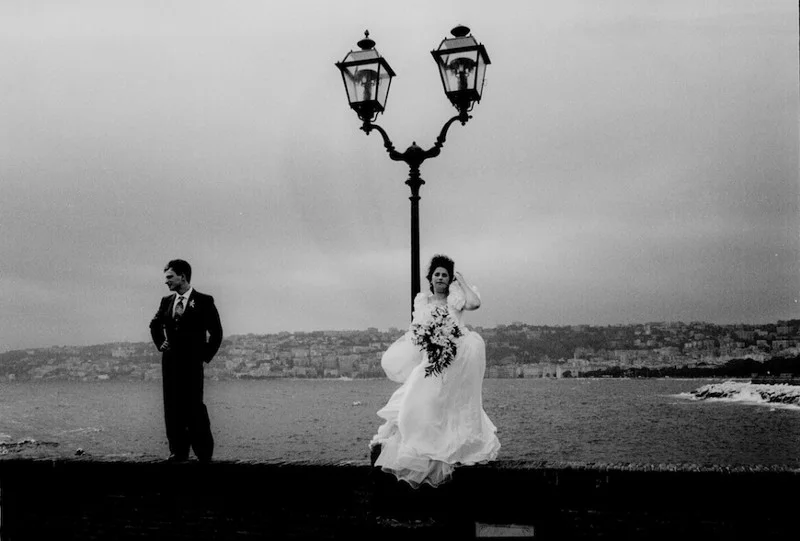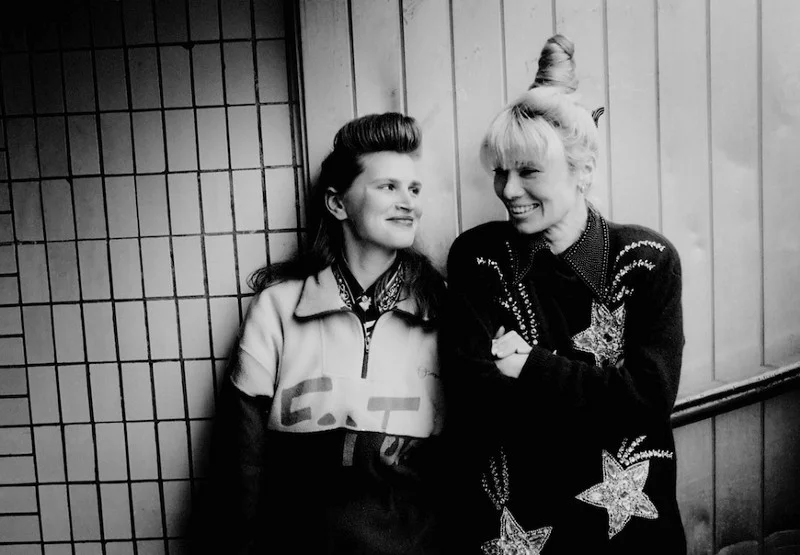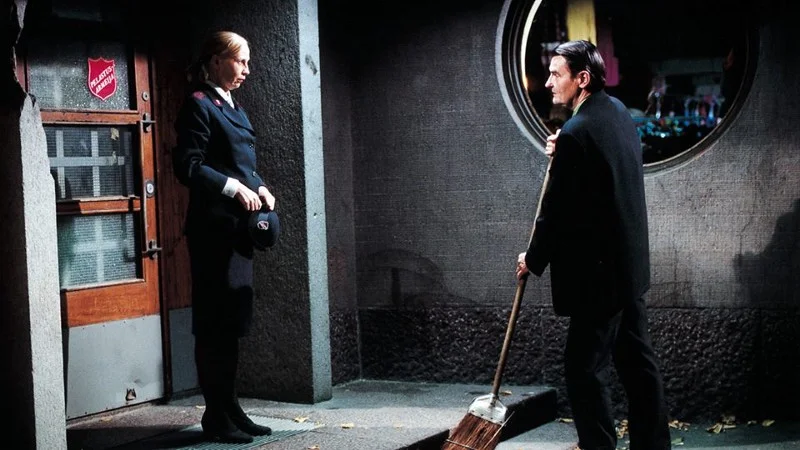A Journey through Europe: The Europeans
An Interview with Danish Journalist Per Nyholm
‘The Europeans’ is such a book that one doesn’t really want to put it down when once has started reading it. Of course, one should have an interest in the history of Europe. It’s somehow funny that when the book was nominated for the 2009 European Book Prize, a French book called ‘Europe for Dummies’ won. Per Nyholm’s well-written and engaging piece of writing with Carsten Ingemann’s absolutely stunning photos can be easily considered a book that gives us facts and stories we all should know about this old and diverse continent.
Although the title suggests that we are about to gain knowledge of the whole European continent, the book focuses more on Eastern and Central Europe. Nyholm, who was the Central European and Balkan correspondent for the daily Jyllands-Posten between 1986 and 2005, mentions in his book a couple of times that the region located between the Baltic sea and the Balkans fascinates him more than the West. So, he investigates whether Central Europeanness exists or not, and if it does, what exactly it means.
To find some answers, Nyholm travels across Europe. He starts and ends his journey at home (in Rome and in Denmark). In-between, he visits most of the post-communist countries, including Hungary, and – geographically speaking – some other Western, Northern and Southern European states. During Nyholm’s journey, the reader is getting more and more familiar with the fact that every nation, country or ethnic group has its own but somewhat complicated history that still has a huge impact on today’s society. Switzerland can be an exception, though.
Photo by Carsten Ingemann
The reader learns that being a welfare state does not necessarily mean that everything is great or is heading in the right direction. Yet Per Nyholm cannot stop being optimistic about the future of Europe. He is definitely an eternal optimist who believes in a united Europe, regardless of all the differences that can be listed when it comes to analysing or discussing the relationships among countries, nations or ethnic groups. In addition to that, one could even list differences that may hinder people sharing the same border from living in peace next to each other, or the differences that sometimes escalate the problems between them. And it doesn’t really matter whether we set Belgium or Kosovo as an example.
As Nyholm’s detailed description of the history of Europe consists of his personal memories and experiences, the book cannot be treated as an objective work, but two of its greatest strengths are, in fact, its subjectivity and honesty. For instance, Nyholm, dares to face the flaws of his homeland as well as Europe without being too judgmental or pessimistic – even if he writes something like that genocide is also part of the European identity. But despite telling the story of a continent that is carrying a huge piece of emotional baggage, Nyholm puts an emphasis on Europe as a revolutionary continent that has reached many great achievements, and surely will do even more.
The fact of the matter is that, Nyholm doesn’t want to tell his readers what to believe or do, he rather encourages them to ask questions, start discussions and see others as their fellow Europeans. Certainly, in today’s society national identities are either vanishing away or getting much stronger, and when the former happens there might be cases when the European identity can substitute national identities.
Nevertheless, these phenomena are influenced by both external and internal factors, such as living in or far away from the homeland, personal traits as well as the prevailing political, social and economic situation, etc. One can really say that every one of us is different and unique but we do share common values, however, what the future holds for Europe is still a mystery. What is certain is that Per Nyholm is hopeful about it.
To find out more, read the interview with Per Nyholm!
Photo by Carsten Ingemann
What were the greatest challenges while writing the book?
Per: After having signed the contract with my Danish publisher I nearly returned it. Suddenly, the job I had been looking forward to doing seemed overwhelming: the whole of Europe, all those peoples, all those cultures, traditions, landscapes, cities and the history. But after a while I calmed down. I told myself – this was after the Balkan Wars, where I had accumulated a lot of over overtime – well, easy now. You have a full year of freedom plus your regular monthly salary. Do not worry, just get started and take your time. So one rainy morning I just walked to the Stazione Termini – in those years I lived in Rome – boarded a train to wherever, and the project started.
This really was always my method: grab a notebook, leave the desk, travel into the blue, and something will happen. I love slow food, slow conversations and slow travels. In this case the journey – by train, by car, by bus, by ferry boat, rarely by plane as I hate planes – lasted over two years and bringing me from the Polar waters to Cyprus and from Ireland to Eastern Ukraine. Of course, again and again, I returned to Rome to do some serious writing, to change clothes, to think, but The Europeans was experienced on the move, often revisiting people and places, mostly in the former communist countries, which had inspired me earlier as a foreign correspondent. The writing part was not so difficult. The blend of personal observations, actual events and history seem to suit me.
What does the Danish audience say about the book?
The reception in Denmark was great. Was I surprised? Immodestly, I must say no. I knew the book was good. It is long sold out. Unfortunately, especially in these difficult times, nobody in my home country seems to be interested in publishing an updated edition. I am very pleased to see the book appearing in the Hungarian language. To my surprise and pleasure, The Europeans was nominated for 2009 European Book Prize, also called the Delors Prize after the former president of the EU Commission. Not surprisingly, it lost to a French book; if I remember correctly, it was called Europe for Dummies.
Photo by Carsten Ingemann
A lot of things have happened since your book was published. Are you still as optimistic about Europe as you were back then? Or would you say that some recent events make you worry to a certain extent?
I am, as I always was, an optimist on behalf of Europe. A lot of pessimism, which I call Euro-masochism, is around, but it is mostly baseless. Sure, we have severe financial, economic and social problems, but most of the people screaming about a crisis , mostly detractors of the European unity process , do not know, what a crisis is. Crisis is, when schools, hospitals, and other essential public services disappear, when salaries and pensions are not being paid, when the state begins to dissolve. We are not nearly there, and we will not get there thanks to the discipline of the EU. The problems mentioned are now being solved slowly and painfully, and they constitute a main job , but only the first main job , for the new Juncker Commission. Our situation would be much worse if we did not have the EU, the internal market, etc.
Europe has been around for about 1,500 years. Until recently, to a large degree, it was occupied by destroying itself through seemingly endless wars. Only during the last 50 years or so have we managed to live in peace. Due to this peace, we have made enormous progress, but we have been also living beyond our means, and this is now being corrected, as it must be. Nevertheless, most Europeans today live a better and safer life than their parents, not to talk about their grandparents. Nations are queuing up to become members of the EU. The present generation actually is the first generation ever in Europe, which do not have to fear war with other Europeans. If anything worries me, it is the fact that these achievements are not being seen for what they are, namely for being European achievements. Various state and government leaders, including the Hungarian Prime Minister Orbán, whom I met in his youth and who I admired for a while, and Prime Minister Cameron in London, are now claiming the successes of the EU as their successes and blaming their failures on the EU. This could be a second main job for the Juncker Commission – to speak openly, to generate optimism and knowledge, to serve Europe and the Europeans rather than the European leaders.
Generally, as I said, I am an optimist. I believe that within the next 20 to 30 years the present union of independent states will give way to a federated Europe, comprised of up to 40 nations, and most of the present member states plus countries such as Ukraine, Belarus, Moldova, Cataluña, Scotland, the Wallons and the Flemish, of course Norway, Switzerland and Iceland, the remainder of the Balkans, and, hopefully, Turkey. Europe continues to be a revolutionary continent: if I had put myself up in Vörösmarty Square 30 years ago, proclaiming that quite soon The Berlin Wall would fall, that the Baltic Republics, Hungary and the other so-called East Bloc countries would be members not only of the EU, but of NATO, I would have been sent to a psychiatric ward, not to a prison. But so it happened. We should not underestimate Europe or the Europeans. People sometimes ask me, but is there no end to Europe? Of course, there is an end. Europe ends, where the European values end. So far, these values seem to expand. Before 1989, they ended more or less at the Elbe. Now they end somewhere in Eastern Ukraine and East of the Baltics, something that should worry the remaining dictatorships, and clearly it does.
Photo by Carsten Ingemann
You write in your book, “being European means one is critical of herself/himself”. Do you think most of the Europeans live like this?
Self-criticism – not to be confused with the perverse communist use of this word – is indeed a European value. Without our criticism and scepticism, practised through centuries, Europe would not be what Europe is today, after Descartes, Kant, Spinoza, Kierkegaard and Sartre, the most attractive continent in the world. In 2013 and the opening months of 2014, I sat on the EU Commission’s cultural committee, tasked with formulating a so-called New Narrative for Europe. Personally, I think we failed. One reason being is that the committee was completely dominated by West Europeans. Of about 15 to 20 members, only three were Eastern or Central Europeans, among them György Konrád, whom I have known for years and whom I admire. To me, he incarnates the European spirit, a good thinker, who is critical, awake, humorous, tolerant and has a beautiful language. He reminds us that we have a duty to be critical of ourselves, our thinking, our actions, our estimation of ourselves and others, every day. That we have a right to be taken seriously by our rulers, and we have the duty to take our societies – not always the rulers – seriously.
You also write, “1989 is one of the most beautiful chapters of the history of European freedom” but something went wrong. And yes, in Hungary a great percentage of the citizens are quite pessimistic about the present and their future. However, this is not a peculiar phenomenon only to Hungary, my Bulgarian, Estonian and Lithuanian friends have described the situation prevailing in their homeland fairly similarly. How do you actually see Hungary and other post-socialist countries right now?
There is a wave of pessimism, what I earlier called Euro-masochism, not only in the East, but also in most European countries, from Bulgaria, Greece, Italy, Spain to France and onto the very well-to-do Nordic countries. In many places it has its reasons, including weak economies and unemployment. In others, such as Denmark, where it has let to an ugly growth of semi-fascistic tendencies, I believe that it has to do with unrealistic expectations, the effect of an over indulgent welfare state, which can no longer be financed. I grew up in the 1940s and 1950s in an area of Copenhagen, somewhere between working class and lower middle class. My mother was alone with me, and she worked hard and had very little money. Poverty was just around the corner. The unemployed of those days went begging for food. Nowadays they mostly live in comfortable small flats with hot and cold water, a colour TV and a mobile phone as well as have access to health and other services. They do not have a lot of money, of course not, but they live decently as they should. Still, they complain, and there are cynical politicians who tell them that they are right. Do you want in Hungary to go back to communism? I suppose not. I know the Baltic countries fairly well: They do not want a return to Soviet rule, they feel safe in the EU and NATO. There are problems, sure. But do not complain!
Photo by Carsten Ingemann
You were in the Balkans during the Yugoslav Wars, and you visited many other places facing many difficulties. In addition to presenting those serious issues, you always found the way to show the good side of that particular region or country, and I would say that people are always in focus. Would you say these are correct observations? I’m also wondering whether you have ever felt that you cannot write something good about a place or its people.
The human being, actually the European, has been always in the midst of my writing, whether it is concerned with about heroes like Sándor Petőfi and Imre Nagy, or even András Hegedűs, with whom several years ago I talked for two days. H.C. Andersen, the Danish storyteller and – let us not forget the he was an impressive traveller – is near the centre of a long essay on Istanbul and the Bosporus, which I just delivered to the publishing house of Aarhus University. The individual, whether it is a taxi driver, a fisherman on the Danube, a prostitute or a head of state, almost always comes first. It is through her or him that the story is being told. Where would our almost united Europe be without figures such as Lech Walesa, the Polish pope, Vaclav Havel, without Robert Schuman and Konrad Adenauer, and without the courageous Hungarian government, which in 1989 allowed its East German tourists to continue to the West? We would not be where we are. That said, I would like to add that I always preferred the anonymous person to the ruler. In the Balkans I stayed away from politicians in favour of ordinary people. Why should I talk to a polished gangster like Milosevic? My readers gained much more from meeting a swineherd near Bijelina in Bosnia, whom I asked what had happened to his Muslim neighbours. “Oh”, he answered – pointing to a not too distant forest – “they are over there”. I then asked him: “Do you talk to them?” “Yes”, he said, “we speak through the muzzles of our rifles”. With such an answer you do not need to meet politicians or diplomats. The story is served directly and understandably and in a way that makes the reader feel that he or she is present.
In-between, you meet, of course, terrible people, and you try to describe them as such. I do not think that I am known for being lenient or nice to, for example, politicians, especially the leading sort. I consider many of them liars and swindlers, and I write so. But even the bleakest of the places have my sympathy. During the Balkan wars, I was occasionally in the Serb enclave of Knin in Croatia. Even today it is not a place, where many people would go for their vacation. I loved it, even though it is so full of colour, of human tragedy, and of history. I feel the same – and write it – in Kosovo. Albania and Ukraine, I positively love.
Photo by Carsten Ingemann
Are you planning to write a new book?
I would very much like to write a new book, which would be my fourth one. I know the theme: travels and thoughts in our present time, our future prospects, where I fear that we are being dehumanized by all this new technology, and much of it would be placed in the USA. But being 71 years of age, I do not feel as agile as before, and I have very little time at my disposal in fact. I write every Sunday a column in my old newspaper, Jyllands-Posten, in Denmark. I try to find time for the newspaper Postimees in Estonia. I am still on the fringes of the EU, I do talks, and, of course, I had the pleasure of this interview with you.
Per Nyholm’s The Europeans was published by M-érték Publishing House and is available in Alexandra bookstores.
Originally published at www.humanamagazin.eu.








